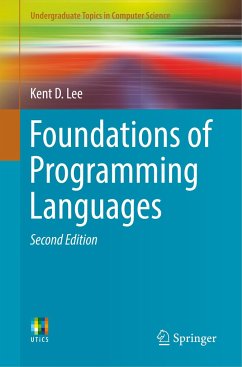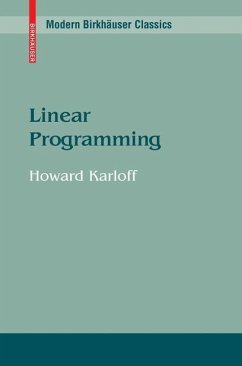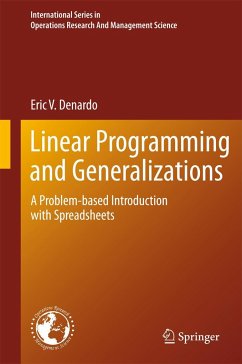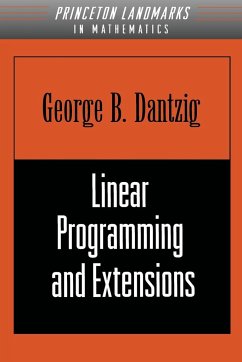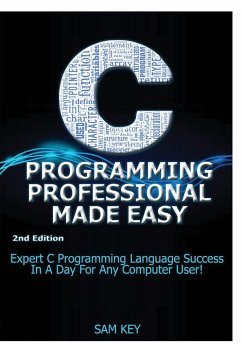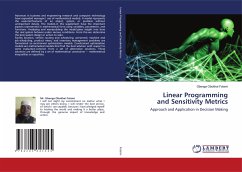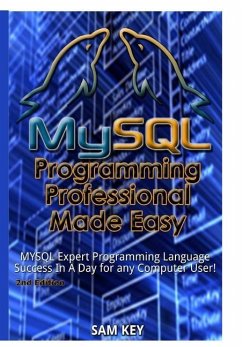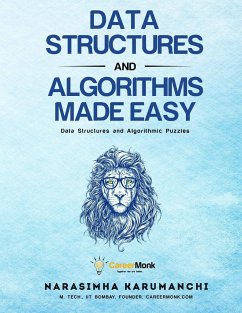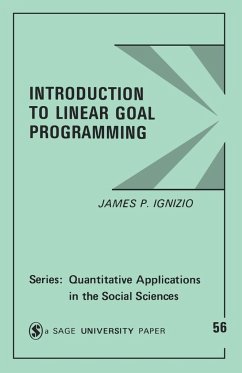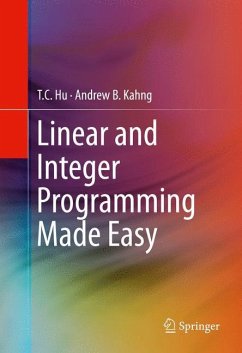
Linear and Integer Programming Made Easy
Versandkostenfrei!
Versandfertig in 6-10 Tagen
46,99 €
inkl. MwSt.
Weitere Ausgaben:

PAYBACK Punkte
23 °P sammeln!
This textbook provides concise coverage of the basics of linear and integer programming which, with megatrends toward optimization, machine learning, big data, etc., are becoming fundamental toolkits for data and information science and technology. The authors' approach is accessible to students from almost all fields of engineering, including operations research, statistics, machine learning, control system design, scheduling, formal verification and computer vision. The presentations enables the basis for numerous approaches to solving hard combinatorial optimization problems through randomi...
This textbook provides concise coverage of the basics of linear and integer programming which, with megatrends toward optimization, machine learning, big data, etc., are becoming fundamental toolkits for data and information science and technology. The authors' approach is accessible to students from almost all fields of engineering, including operations research, statistics, machine learning, control system design, scheduling, formal verification and computer vision. The presentations enables the basis for numerous approaches to solving hard combinatorial optimization problems through randomization and approximation.
Readers will learn to cast various problems that may arise in their research as optimization problems, understand the cases where the optimization problem will be linear, choose appropriate solution methods and interpret results appropriately.
Readers will learn to cast various problems that may arise in their research as optimization problems, understand the cases where the optimization problem will be linear, choose appropriate solution methods and interpret results appropriately.



